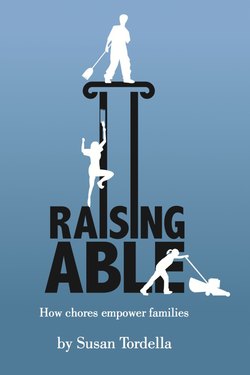Читать книгу Raising Able - Susan Tordella - Страница 5
На сайте Литреса книга снята с продажи.
60 miles away going 60 miles an hour
ОглавлениеThanks to chores and the Adlerian approach, my children evolved into teenagers who made good independent decisions when they were 60 miles away going 60 miles an hour. Are they wearing a seatbelt? Going the speed limit? With friends I know and like? Where they said they would be? The stakes are much higher with teenagers. Now in their twenties, my four children successfully manage their money, time, careers, education and relationships.
Even though they were raised in a fairly affluent community, they managed to avoid the entitlement trap. It’s impossible to feel entitled when you sweep floors, clean toilets and wash dishes. These humble activities teach valuable lifelong lessons and develop the precious gifts of self-discipline and family connections. Doing chores impacts young people on the soul level, while contributing to the good of the family and easing the burden on parents.
Respondents to my survey of 560 people between ages 11 and 92 about childhood chores affirmed that chores teach responsibility and teamwork.
Doing a few chores regularly is a powerful teaching tool when combined with the rest of the Adlerian approach. When children pitch in, parents can retire from being the house servants. Parents will feel better, the home and yard will be maintained by a team. Children will learn how to do something when they might not feel like it – also known as self-discipline.
Adopted children and children with special needs and disabilities will benefit from chores just like typical children. Special needs children long to belong, be normal, and find their place in the family by contributing and being depended upon.
By the way, it’s easier and faster to everything yourself around the house. Family meetings and chores take time, energy and follow through. When adults doing everything and provide everything for children, it breeds entitlement, which can be difficult to shed.
